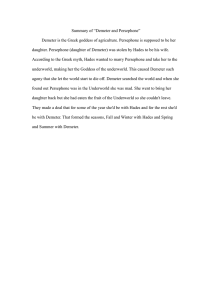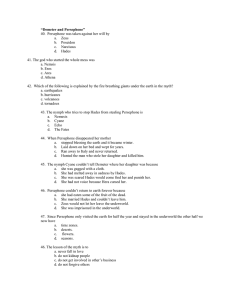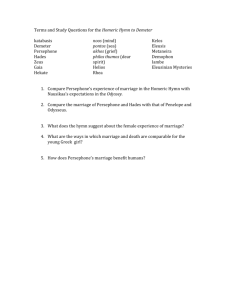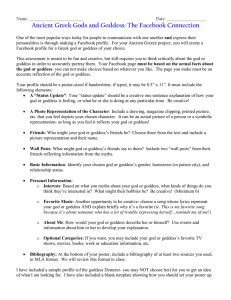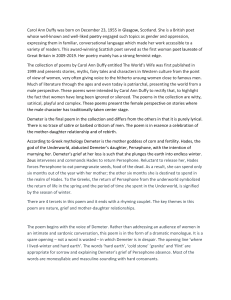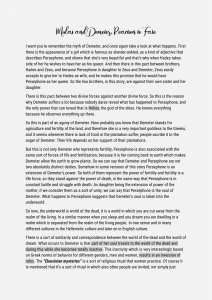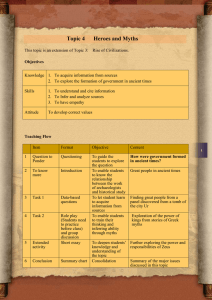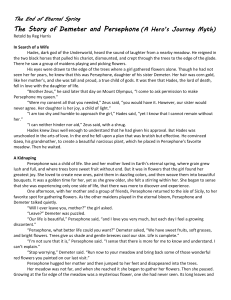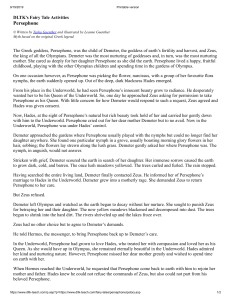Demeter and Persephone
advertisement
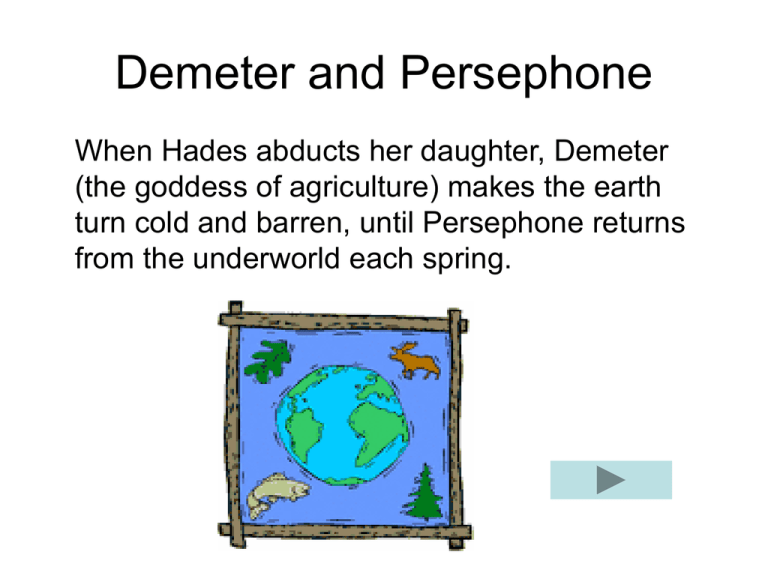
Demeter and Persephone When Hades abducts her daughter, Demeter (the goddess of agriculture) makes the earth turn cold and barren, until Persephone returns from the underworld each spring. DEMETER In Greek mythology, the goddess of agriculture, of harvest, and of grain; a type of the earth goddess and the mother goddess. Her roman cognate is CERES, the roman goddess of grain, from whose name we derive the word “cereal.” Persephone The daughter of Zeus and Demeter; the Maiden of Spring. Her Roman cognate is Proserpina. HADES The Greek god of the underworld, who rules over the abode of the dead. His Roman cognate is PLUTO, also known as DIS Myths try to explain the world Example: Why do we have the seasons? According to Greek mythology, the goddess responsible for the earth’s bounty was Demeter. Her sweet daughter Persephone gladdened Demeter’s heart, and Demeter’s love and happiness kept the earth in bloom. For an entire year Demeter refused to allow the earth to bloom when Persephone was stolen from her. All over the world people starved. Concerned that the mortals would all die out, leaving no one to worship them, the other gods begged Zeus to talk to Demeter and recall her to her duties. Zeus’ Pity Zeus took pity on the mother and daughter. Since Persephone had only eaten one seed, and had done so unwillingly , he decreed that she would not have to stay in the underworld for an entire year. Instead , she would stay there for only half of each year, and then in the other half of the year she would be allowed to return to her mother. Each year, during the months when Persephone returns to her, Demeter makes the earth green and blesses the harvest. But during the months when Persephone has to stay in the underworld, Demeter mourns, and in her grief and loneliness she makes the earth turn barren and cold. Thus the seasons are explained.
